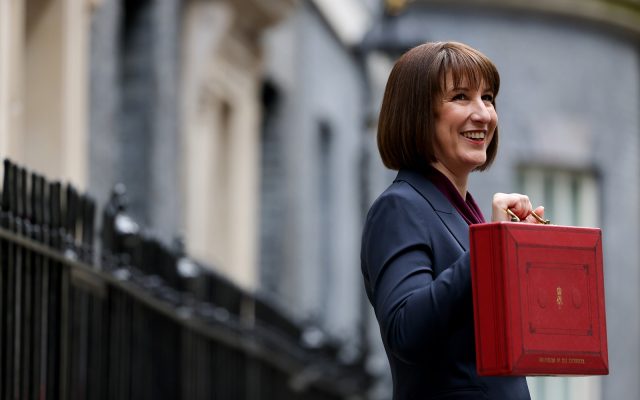Alcohol duty in the UK will increase in line with the Retail Price Index (RPI) from February 2025, however draught products will receive a tax cut.

Alcohol duty was frozen by the former chancellor Jeremy Hunt in his autumn statement last year, which was extended in the spring budget.
The new chancellor Rachel Reeves today (30 October) announced the freeze would not continue for spirits, although it would for alcohol sold on draught in on-trade venues.
She claimed that nearly two-thirds of alcoholic drinks purchased in pubs are served on draft, and so rather than increasing duty on these products in line with inflation, she will instead cut it by 1.7%.
The UK Spirits Alliance (UKSA), which represents more than 280 distilleries and micro-businesses in the UK, responded with ‘fury’: “The chancellor’s increase in excise duty on spirits is a kick in the teeth to distillers, landlords and working people who will feel this in their pockets.
“Pubs are more than pints – a third of all alcoholic drinks sold across hospitality are spirits. Today’s decision won’t stop thousands more pubs and distillers closing down.
“We need action not gimmicks, and we need a government to stop discriminating against the iconic British spirits industry.
“The last government hiked spirits duty by 10.1% and lost over £300m and counting in Treasury revenues. This decision will increase those losses in future and will cost jobs, reduce investment and damage growth.
“Lessons have not been learned and commitments to the sector during and since the election have been broken. We strongly urge MPs across Britain to make their voices heard and condemn this duty hike.”
Simon Shelbourn, chief financial officer for employee-owned Kingsland Drinks, added: “Further taxing non-draft alcohol hurts everyone. While the government is working hard to plug the hole in the country’s finances, the consumer is being further penalised, despite already bearing the weight of the cost-of-living crisis, and much of the drinks industry will once again have to prove its resilience despite being positioned to drive economic growth.
“The move is damaging to the industry and a setback to firms across the board who have worked tirelessly in recent years to withstand relentless taxation in the toughest of trading conditions.”
Big changes for the on-trade
In another blow for the on-trade sector, Reeves promised to make no increases to employees’ National Insurance (NI) contributions, VAT or income tax, instead choosing to increase the NI contributions from employers by 1.2 percentage points to 15% from April 2025.
She said: “Working people will not see higher taxes in their payslips as a result of the choices that I am making today. That is a promise made and a promise fulfilled.”
She also announced a reduction of the secondary threshold – the level at which employers start paying NI – on each employee’s salary from £9,100 to £5,000.
She claimed the move would raise £25bn per year.
“I know this is a difficult choice,” she continued. “I did not take this decision lightly. We are asking businesses to contribute more and I know there will be impacts of this measure felt beyond businesses too.
“But in the circumstances I have inherited, it is the right choice to make. Successful businesses depend on successful schools, healthy businesses depend on a healthy NHS, and a strong economy on strong public finances.”
To protect smaller businesses, she increased the Employment Allowance from £5,000 to £10,500.
She claimed 865,000 employers won’t pay any NI at all next year, and more than 1 million will pay the same or less than they did previously. The new allowance allows a small business to employ the equivalent of four full-time workers on the National Living Wage without paying any NI contributions.
Reeves also increased the minimum wage by 6.7% to £12.21 per hour, worth up to £1,400 a year for a full-time worker. She also announced a move toward a single adult rate, with age boundaries phased out over time, beginning with an increase from £8.60 to £10 an hour for 18 to 20-year-olds.
Following a leak of the minimum wage plans prior to the budget, Michael Kill, CEO of the Night Time Industries Association, said: “Minimum wage hikes may seem like a win for workers, but for small nightlife and hospitality businesses already stretched thin, it’s at breaking point. These increases must be balanced and affordable for businesses, or we risk being counterproductive, cutting shifts and jobs as companies streamline just to survive.”
“This feels like a distraction from the main budget. Just like the Tory announcement on National Living Wage increases, we expected a more transparent and straightforward discussion, especially since these decisions directly affect people’s livelihoods and the future of businesses.”
“The fear across the sector is real and should not be ignored; the government’s lack of insight into how this impacts vulnerable sectors is deeply troubling.”
More positively for the on-trade, Reeves promised to introduce a new business rates system that includes two permanent lower rates for retail, hospitality and leisure companies from 2026/27. The lower rate will be offset by a higher multiplier for the most valuable properties.
She also extended the previous government’s business rates relief, which was due to expire in April 2025, by providing a 40% relief on business rates for hospitality businesses in 2025/26, up to a cap of £110,000 per business.
Related news
UK pub garden smoking ban in doubt
